With Mad Men coming back on the air for its (bifurcated) final season, and me returning to work after a wonderful weekend at the Turner Classic Movies Classic Film Festival, I’ve got offices on my mind. Luckily, the office is not an infrequent topic in cinematic history!
10.) Passion (Brian De Palma, 2012)
There’s some strange black magic going on in this film, one of only a handful of De Palma’s films I’ve been able to totally embrace. More or less telling the story of two women warring for dominance in an office environment, De Palma heightens the paranoia and megalomania that drives any sort of quest for power, warping the fundamental laws that govern the world around them, which, being a De Palma movie, was never that grounded to begin with. Noomi Rapace has crafted quite an exceptional career for herself in English-language films after her Swedish breakout in The Girl with the Dragon Tattoo, and this might be her finest hour in any language, alternately a source of empathy and alienation.
9.) Ikiru (Akira Kurosawa, 1952)
Kurosawa’s touching testament to the difference one man can make remains a lovely, gently forceful damnation of the way so many of us waste what little time we have. Takashi Shimura plays a dying government employee who navigates the beaurocratic waters to transform a cesspool into a playground (or, to paraphrase Lester Bangs, it takes Kurosawa one movie to accomplish what it takes Parks & Recreation five seasons to not accomplish). While Kurosawa is in some ways working within a of self-empowerment structure, casting Watanabe’s obstacles as shortsighted enemies, by keeping his focus squarely on Watanabe for so long, he reminds us that the greatest obstacle is often our own motivation.
8.) The Hudsucker Proxy (Joel Coen, 1994)
Who better to highlight the insanity with which most big businesses seem to be run than the Coen brothers? Their 1994 box office bomb is half screwball, half Looney Tunes, one of the few that seems to be purely a recreation of their influences than an extension of them. The idea of a capitalist embarking on an absurd scheme to bring himself wealth and power, only to see the whole thing blow up in his face, was a staple of 1930s cinema, and one the Coens bring to the screen in rather epic proportions, using special effects to bring their outsized imaginations to life. It remains their most outlandish feature, and it’s a shame that its box office failure has prevented or diminished similar ambitions ever since.
7.) Anchorman: The Legend of Ron Burgundy (Adam McKay, 2004)
As grand an expression of fading power and glory as has ever been wrought. Though perhaps just thinking about this paragraph being read in Ron Burgundy’s voice has me thinking in hyperbole. McKay’s take-no-prisoners, balls-to-the-wall comedy is complete insanity, barely filtered and robustly imaginative. It is at once intensely petty, concerning only the operations of a local news show in San Diego, and a microcosm of a changing world, illustrating, much like Mad Men, that such change starts small.
6.) Baby Face (Alfred E. Green, 1933)
A good counter example to Anchorman – whereas that comedy was about a woman rising in her career through professionalism and skill, Baby Face is about a woman who climbs her way up through an office building – and, eventually, society – by sleeping with whoever works above her (a process depicted by the camera “climbing” from one floor to the next). Seems risque even for today, let alone the 1930s, but those were the lean mean days of the Pre-Code era. Barbara Stanwyck gives one of her finest performances as the woman in question, at turns sexy, desperate, conniving, and ultimately so human it could break your heart.
5.) Office Space (Mike Judge, 1999)
Any list of office movies without Mike Judge’s seminal, era-defining, now-titanic entry would be foolish, but at the same time, there’s not a whole lot I can say here that even the most casual moviegoer won’t already know. The film is just damn funny.
4.) The Errand Boy (Jerry Lewis, 1961)
Speaking of “just damn funny,” we have Jerry Lewis’s third feature as director, about, you guessed it, an errand boy who works for Paramount Pictures, tapped by the studio heads to keep an eye on their inner workings. Lewis is exactly the kind of guy who would benefit from having a studio lot as his playground, though the film’s funniest moment comes about by just putting Lewis in an office chair and going to work.
3.) Employees’ Entrance & Skyscraper Souls (Roy Del Ruth / Edgar Selwyn, both 1932)
Because nobody should have to choose between films about Warren William trying to seize total control of an office. In the case of Skyscraper Souls, he’s after a gigantic skyscraper (the novel on which it was based took its cue from the Empire State Building, which was finished in 1931), one bearing his name, that he owns, but which the bank is seeking to take away from him, so there’s an extent to which his mad grab for power makes some sort of sense. In Employees’ Entrance, his aims are considerably lower – he just wants the most profitable department store, no matter whose life he has to ruin in the process. William could tap into pure capitalistic id better than almost anyone, and he’s astounding magnetic in both, the kind of guy you can easily see rising to power, even if you’re left terrified by the result. That both came out in the midst of the Great Depression is no small matter, as Hollywood was more inclined in those days to side with the disenfranchised and show just how corrupt and evil those rich capitalists were.
2.) Brazil (Terry Gilliam, 1985)
Though more an examination of governmental overreach, the actual moment-to-moment struggles of Sam Lowry (Jonathan Pryce) concern the mere navigation of his rather meager job through a hilariously complex structure, both literal and figurative. One of the film’s highlight scenes sees him trying to chase down a supervisor through a seemingly extra-dimensional hallway as dozens of lackeys do likewise, as clear a crystallization of the impossibility of getting one’s voice heard in such a place.
1.) The Apartment & One, Two, Three (Billy Wilder, 1960 & 1961)
Wilder clearly had the workplace on his mind, making these two pictures back-to-back. Both feature protagonists trying to rise up the ranks of their companies through somewhat unusual means – in The Apartment, Jack Lemmon loans his pad out to executives cheating on their wives; in One, Two, Three, James Cagney, an international executive for Coca-Cola, houses his boss’s daughter in his West Berlin home, only for her to get married to and pregnant by a poor East German communist (and wouldn’t you know it, Daddy’s due in town the very next day). Corporate life, it seems, is not merely a matter of doing one’s job well, but conducting one’s entire life in a subservient manner, and there’s an extent to which Wilder’s suggesting, with these two films, that each promotion just promises more of the complications these men have taken on. After all, if the life Jack Lemmon’s working toward is the one James Cagney is leading, what, really, is the point of any of it?

















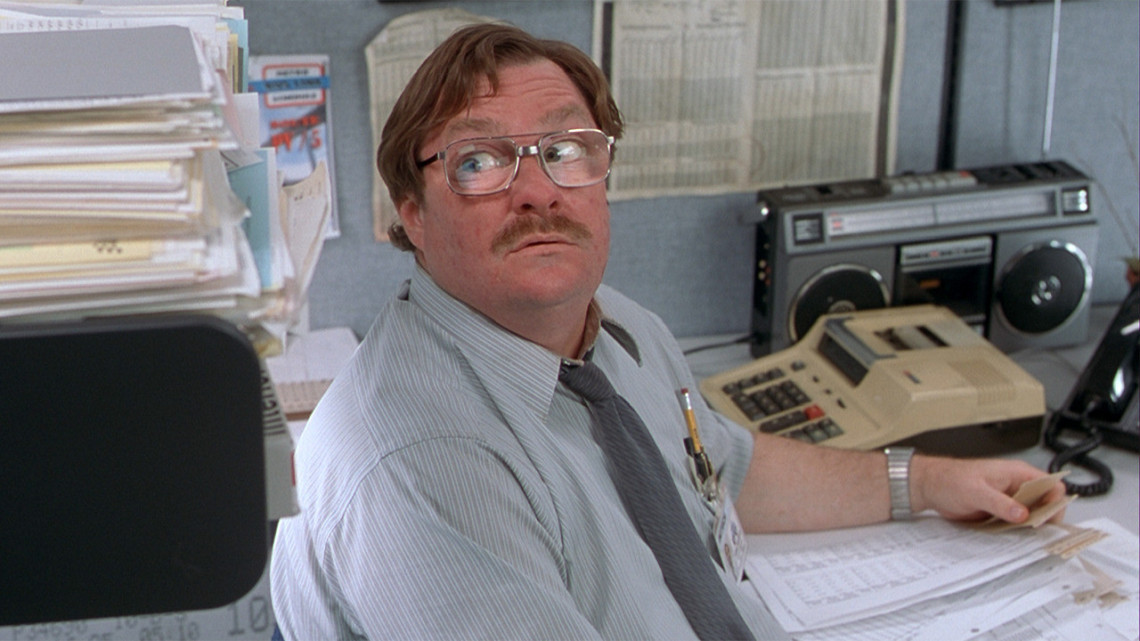
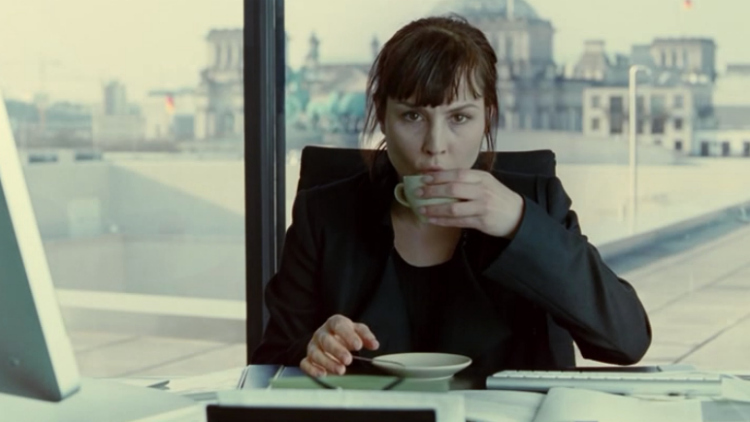
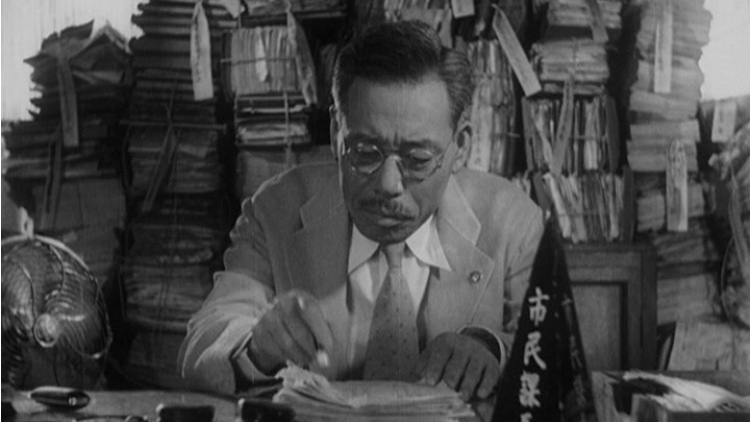
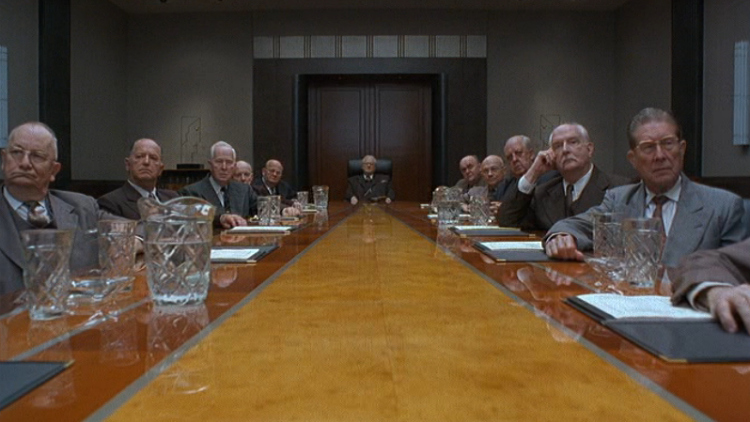
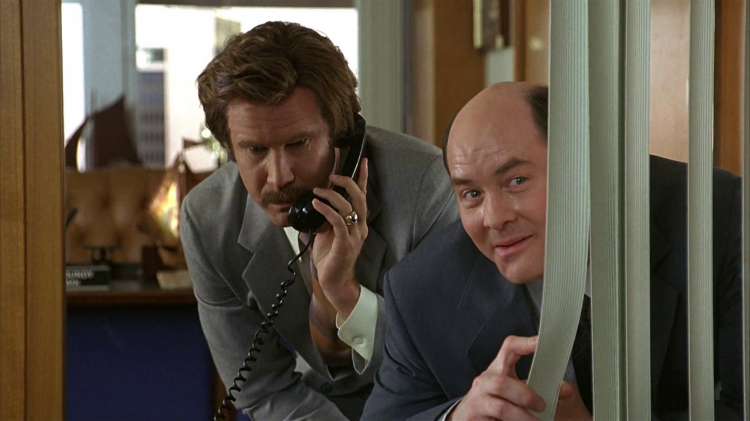
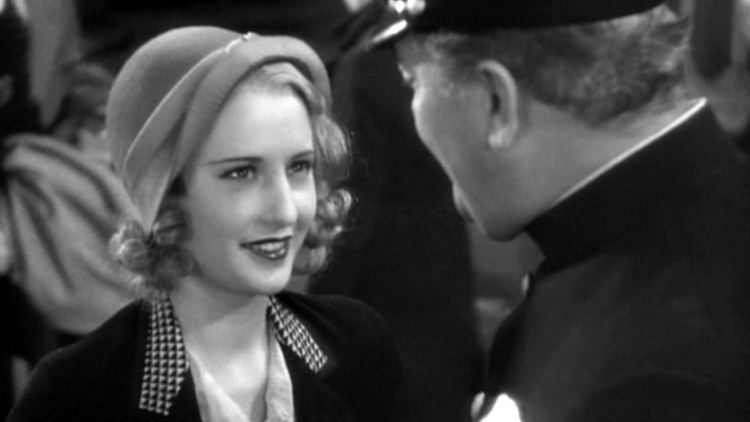
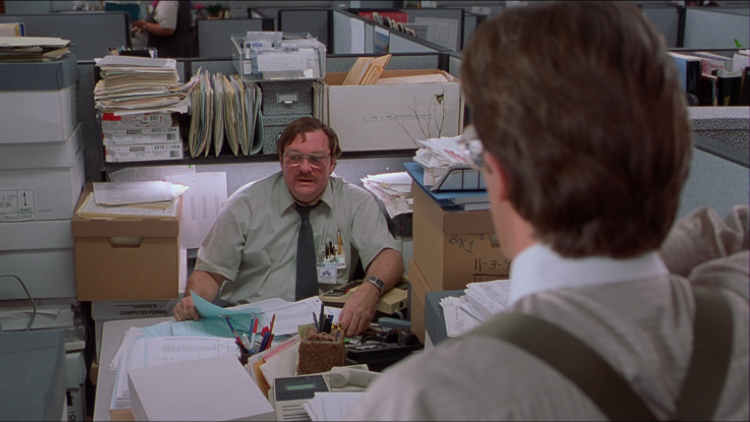
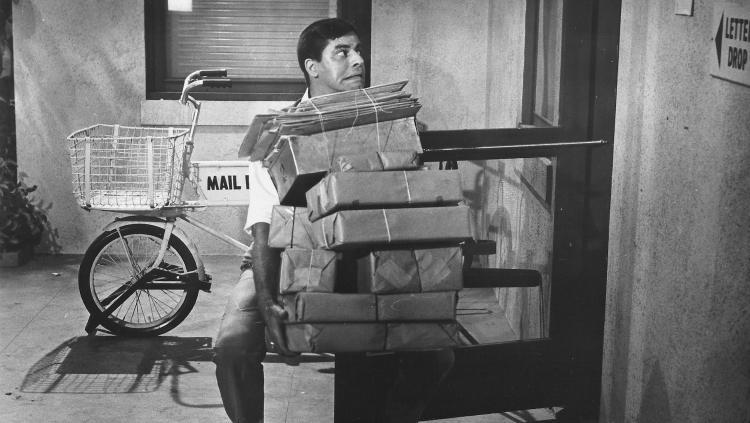
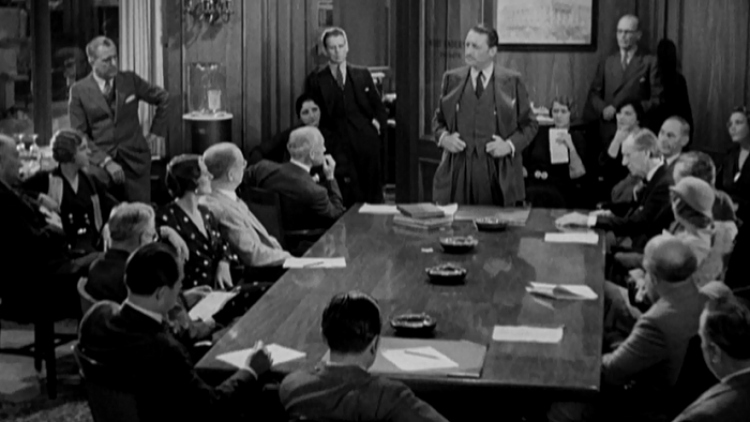
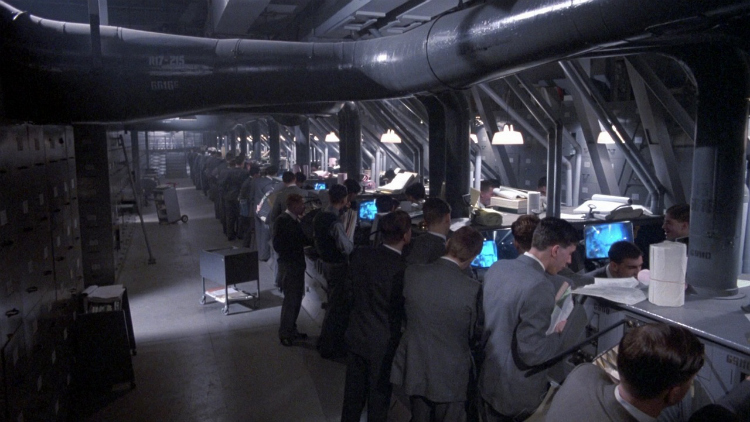
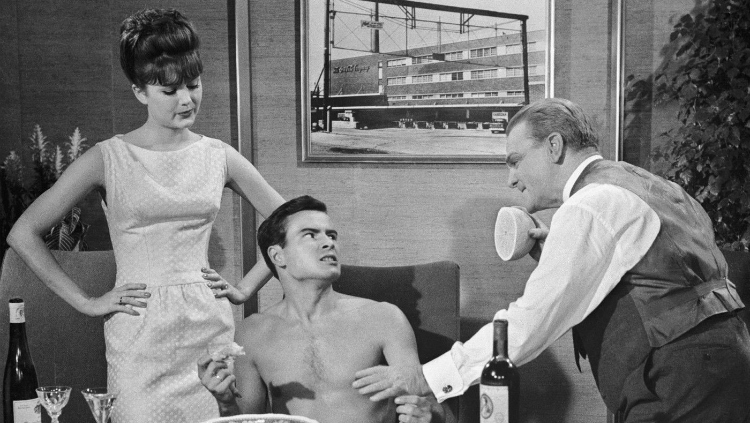
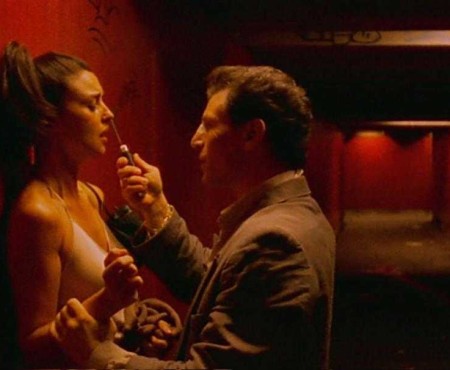
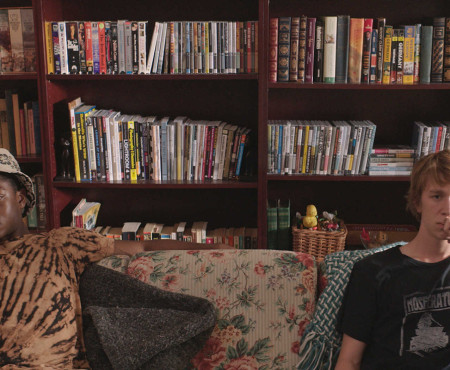
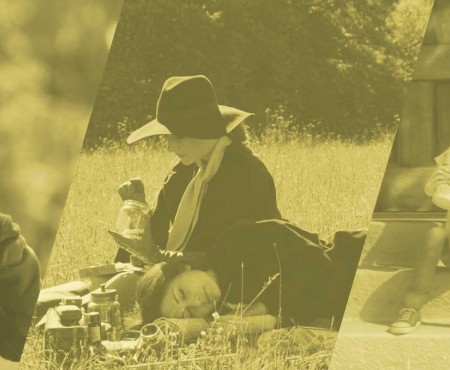
3 thoughts on “Top 10 Office Movies”
No “Secretary”? How DARE you. No “Broadcast News” or “Network”? Inexcusable, since you included the lame “Anchorman”
I’ll give you a pass for not including the little seen but very good “A Shock to the System,” a nasty little black comedy with Michael Caine playing an aging executive who goes on a murder spree to climb the corporate ladder.
I’ll add that last one to my list for sure; that sounds awesome. I haven’t seen Secretary, don’t think very highly of Broadcast News, and don’t think Network really sticks to the central idea of an office, but maybe that’s just me. As for Anchorman being “lame,” well, I can’t help you there.
Network is every bit as much about Diane’s office politics as Howard Beale.